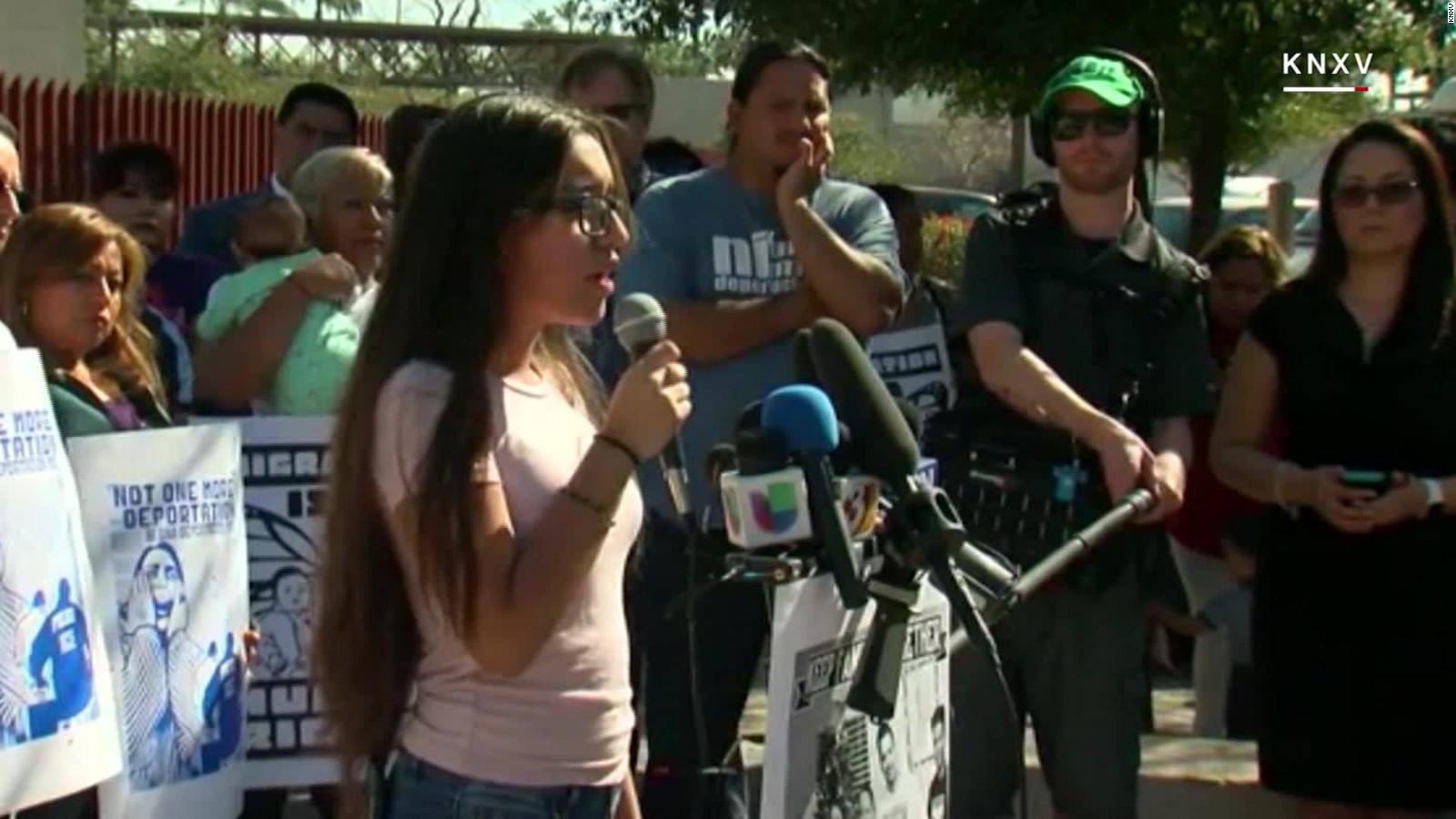Deported Mom Separated From Daughter: A Heartbreaking Journey Of Love And Resilience
Imagine this: You're a mother just trying to make ends meet for your family. One day, everything changes in the blink of an eye. That's the story of deported moms separated from their daughters—a tale that tugs at the heartstrings of anyone who hears it. It's not just a legal issue; it's a human one. And today, we're diving deep into this emotional rollercoaster to uncover the truth behind these stories.
This isn't just another news headline or a political debate. It's about real people, real families, and the challenges they face when deportation tears them apart. We'll explore the struggles, the triumphs, and the unwavering love that keeps these families hopeful even in the darkest of times.
So grab a cup of coffee, sit back, and let's unravel the complexities surrounding deported moms separated from their daughters. This is more than just a story—it's a movement toward understanding and compassion.
The Reality of Deportation: A Growing Concern
Deportation has become a hot-button issue in recent years, and for good reason. The numbers don't lie: according to the Migration Policy Institute, over **1 million parents of U.S.-born children** have been deported since 2009. That's a staggering statistic that paints a grim picture of the realities faced by countless families.
When a mother is deported, the ripple effect is enormous. Not only does it impact the immediate family, but it also affects the broader community. Children left behind often struggle with emotional trauma, academic performance, and even basic needs like food and shelter.
Why This Matters: The Human Cost
Let's break it down: when a mom is deported, it's not just about losing a parent. It's about losing a caregiver, a provider, and a source of love and stability. For daughters, this separation can feel like losing a part of themselves. The emotional toll is immense, and the long-term effects can be devastating.
- Studies show that children of deported parents are more likely to experience anxiety and depression.
- Academic performance often declines due to the emotional distress caused by separation.
- Financial instability becomes a major concern as single-parent households struggle to make ends meet.
Biography: Meet Maria, a Deported Mom
To truly understand the impact of deportation, we need to look at real-life examples. Meet Maria, a mother who was deported after living in the U.S. for over a decade. Her story is one of resilience, love, and the unbreakable bond between a mother and her daughter.
Maria's Journey
Maria came to the U.S. in search of a better life for her family. She worked tirelessly as a housekeeper, sending her daughter, Sofia, to school and ensuring she had everything she needed. But one day, everything changed. A routine traffic stop led to her deportation, leaving Sofia heartbroken and alone.
| Name | Maria Rodriguez |
|---|---|
| Age | 37 |
| Occupation | Housekeeper |
| Daughter's Name | Sofia Rodriguez |
| Daughter's Age | 12 |
Legal Challenges Faced by Deported Moms
The legal system can be a maze, especially for those navigating it without proper resources. For deported moms, the process is often confusing and overwhelming. Many face hurdles such as:
- Limited access to legal representation.
- Language barriers that make communication difficult.
- Strict immigration policies that leave little room for leniency.
It's not just about breaking the law; it's about understanding the circumstances that lead to deportation and finding ways to address them compassionately.
Seeking Justice: The Role of Advocates
Thankfully, there are organizations and advocates working tirelessly to support deported moms and their families. These groups provide legal assistance, emotional support, and resources to help families stay connected despite the distance.
For example, the **American Civil Liberties Union (ACLU)** has been instrumental in fighting for the rights of immigrants and their families. Their efforts have led to significant changes in policy and increased awareness about the issues surrounding deportation.
Emotional Impact on Daughters
When a mother is deported, the emotional impact on her daughter can be profound. Young girls often struggle with feelings of abandonment, guilt, and confusion. It's not uncommon for them to ask, "What did I do wrong?" or "Why did Mommy leave?"
Therapists and counselors emphasize the importance of addressing these emotions early on. Providing a safe space for children to express their feelings can make a world of difference in their healing process.
Building Resilience: Tips for Parents and Guardians
For those left behind, there are steps that can be taken to help daughters cope with the absence of their mothers. Here are a few tips:
- Encourage open communication and active listening.
- Seek professional help if needed, such as therapy or counseling.
- Stay connected through phone calls, video chats, or letters.
Community Support: A Lifeline for Families
No one should face the challenges of deportation alone. That's where community support comes in. Local organizations, churches, and schools can play a vital role in helping families navigate the aftermath of deportation.
For instance, the **National Immigrant Justice Center** offers a range of services, including legal aid, advocacy, and educational programs. These resources can be a lifeline for families struggling to rebuild their lives.
How You Can Help
If you're reading this and feel moved to action, there are plenty of ways to get involved. Consider volunteering your time, donating to organizations that support immigrant families, or simply spreading awareness about the issue.
Every little bit helps, and together, we can create a more compassionate and understanding society.
Government Policies: A Closer Look
Government policies play a significant role in shaping the lives of deported moms and their daughters. Recent changes in immigration laws have sparked both hope and fear among immigrant communities. On one hand, there are efforts to reform the system and provide pathways to citizenship. On the other hand, stricter enforcement measures have led to increased deportations.
It's a delicate balance that requires careful consideration of the human impact. Policymakers must weigh the benefits of security with the rights of individuals and families.
The Future of Immigration Reform
Looking ahead, there are promising signs of progress. Advocates and lawmakers are pushing for comprehensive immigration reform that addresses the root causes of deportation and offers solutions for families affected by it.
By prioritizing family unity and providing legal avenues for immigration, we can create a more just and equitable system for everyone involved.
Reuniting Families: Stories of Hope
Despite the challenges, there are stories of hope and reunification. Some deported moms have been able to return to their daughters through legal means or advocacy efforts. These stories serve as a reminder that, while the journey may be difficult, it's not impossible.
Take, for example, the case of Ana Martinez, who was reunited with her daughter after years of fighting the system. Her story is a testament to the power of perseverance and the support of a caring community.
Lessons Learned: What We Can Do Moving Forward
As we wrap up this exploration of deported moms separated from their daughters, it's important to reflect on what we've learned. The key takeaway is that this issue is not just about policy—it's about people. Real people with real stories and real emotions.
To move forward, we must:
- Advocate for policies that prioritize family unity.
- Support organizations working to assist immigrant families.
- Spread awareness and empathy to foster understanding.
Conclusion: A Call to Action
In conclusion, the story of deported moms separated from their daughters is one that demands our attention and compassion. It's a reminder that behind every statistic and headline is a human being with dreams, hopes, and fears.
We urge you to take action by sharing this article, supporting organizations that help immigrant families, and staying informed about the issues at hand. Together, we can make a difference and ensure that no child has to grow up without their mom.
Let's keep the conversation going and work toward a future where families can stay together, no matter what.
Table of Contents
- The Reality of Deportation: A Growing Concern
- Why This Matters: The Human Cost
- Biography: Meet Maria, a Deported Mom
- Legal Challenges Faced by Deported Moms
- Emotional Impact on Daughters
- Community Support: A Lifeline for Families
- Government Policies: A Closer Look
- Reuniting Families: Stories of Hope
- Lessons Learned: What We Can Do Moving Forward
- Conclusion: A Call to Action


